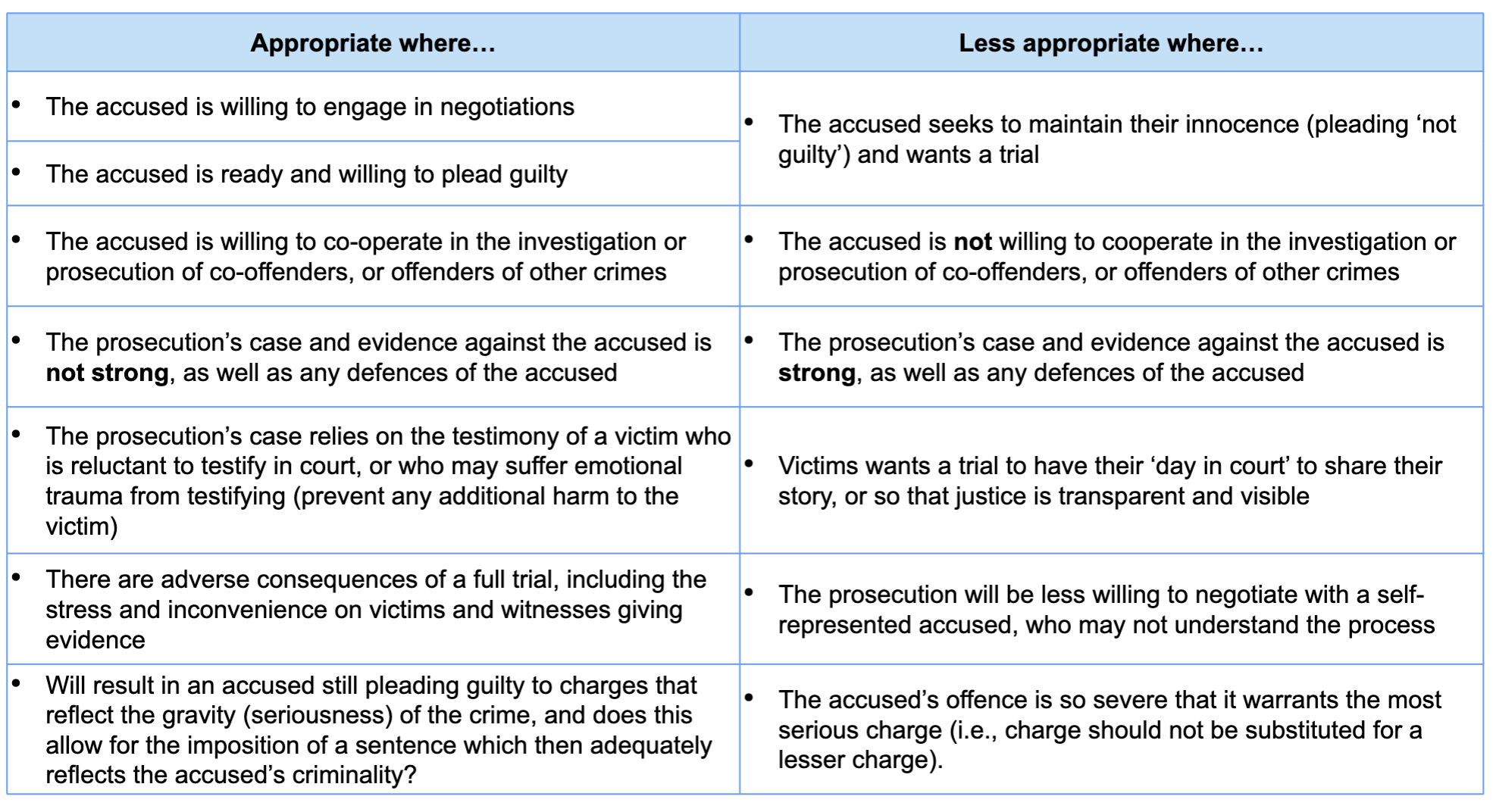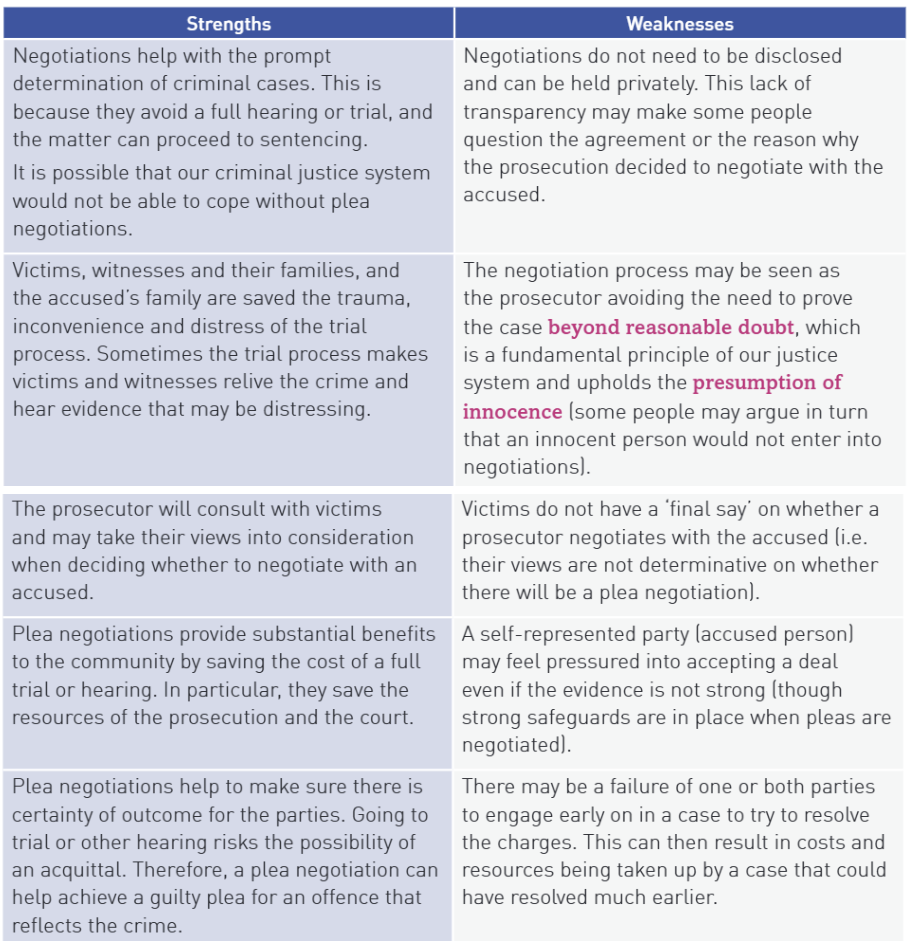KK7: Plea Negotiations
1/10
There's no tags or description
Looks like no tags are added yet.
Name | Mastery | Learn | Test | Matching | Spaced |
|---|
No study sessions yet.
11 Terms
What is a plea negotiation?
A plea negotiation is a private discussion which takes place between the prosecution and the accused (and their legal practitioners), to reach an agreement where:
The accused pleads guilty to a less serious charge, in exchange for the prosecution not pursuing a more serious charge (which carries a higher maximum sentence).
The accused pleads guilty to fewer charges, with the remaining charges not proceeding.
The accused pleads guilty to a charge, but an agreement is reached about the facts on which the plea is based.
Generally what does a plea negotiation do?
Generally, they either reduce the number of charges or reduce severity of the charge/s
Example of a plea negotiation
An accused pleading guilty to some murder charges in a plea negotiation so that other murder charges will be dropped (Carl Williams’ case).
Parties involved in discussion
The accused & legal practitioners and the prosecution
it is an exchange
courts are not involved
What is discussed between the parties?
discussion about appropriate charges against the accused
The reliability and relevance of evidence in the case
Likely sentencing consequences if the accused pleads guilty
The prosecution CANNOT offer a specific sanction
Purposes of plea negotiations
Ensure certainty in the outcome of a case
Save on costs, time and resources
Prompt resolution without stress and trauma
Purpose #1 – Ensure certainty in the outcome of a case
If negotiations are successful, the accused will plead guilty to the charges, therefore ensuring certainty in the outcome
This reduces the risk of an acquittal - Where the prosecution fails to prove that the accused is guilty beyond reasonable doubt.
Removes this risk because the verdict is not in the hands of the magistrate or jury
Purpose #2 – Save on costs, time and resources
An early guilty plea avoids the need for a trial or hearing
This saves the court and the prosecution’s resources, as well as the cost and time associated with a trial/hearing - e.g legal frees, jury costs
Reduces backlog and delays of the court
Purpose #3 – Prompt resolution without stress and trauma
If an accused pleads guilty, any victims and/or witnesses of the offence are spared the stress and possible psychological harm of providing their oral testimony and having to undergo cross-examination.
This may help victims move on from what has happened, and avoid re-traumatising them.
When are plea negotiations appropriate / not appropriate?

Strengths and weaknesses of plea negotiations
